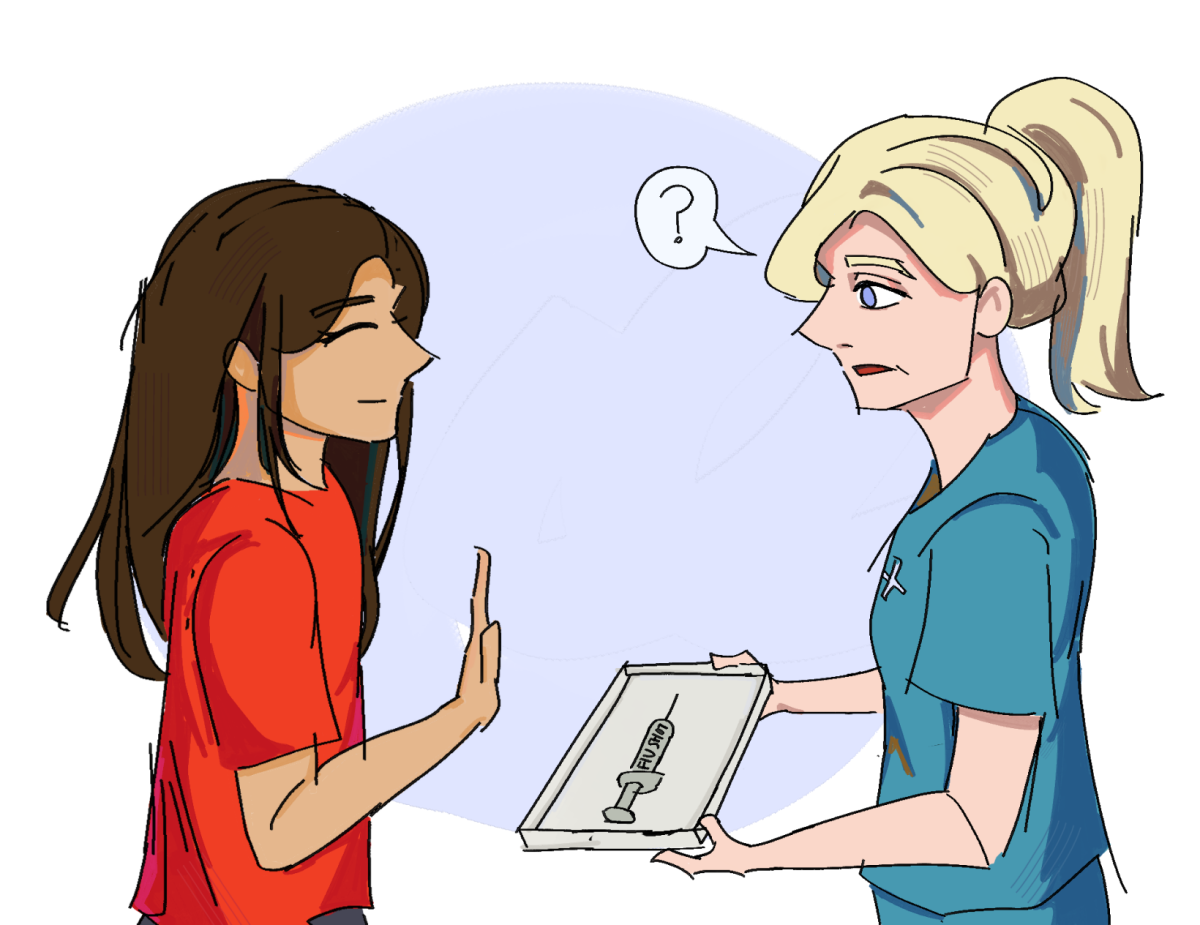In the heat of this year’s virus season, the flu and the results of anti-vaccination sentiments are a hot topic once again.
Since NC State students returned for the spring semester, flu diagnoses have been rampant, and with the influx of cases, vaccinations have been discussed. Since the COVID-19 pandemic, students have been debating vaccines and their effectiveness.
Matthew Koci, a professor of infectious diseases, said flu vaccines are working, even if students may not believe so.
“This has been one of the worst flu seasons in at least the last 10 years,” Koci said. “It’s really hard for folks to recognize how effective something is when the way we know it’s effective is that nothing happened.”
Koci said misinformation and skepticism following the COVID-19 pandemic are key reasons that students may be opting out of the annual flu vaccination.
Steven Greene, a professor of political science, echoed Koci’s concerns about skepticism surrounding vaccinations. Greene said a key element regarding the mistrust of these vaccines — specifically among people of different political affiliations — is due to the lack of promotion for the treatment.
“The fact is that people take cues from elites,” Greene said. “There’s no major Republican figures now kind of pushing the line that, ‘Hey, vaccines are good, and you should have them and you need them,’ and plenty of Republican figures who are calling them into question.”
Greene emphasized that distrust is mainly the result of political figures voicing their promotion of an anti-vaccination view.
“Part of the problem is, shall we say, the public health community,” Greene said. “And the truth is, public health as a field is something that overwhelmingly attracts people of a liberal political predisposition. And of course, that’s gonna matter.”
Greene said the overwhelming promotion of different vaccines during the COVID-19 pandemic from Democrats is part of what caused such a major divide among political parties. This major advertising for vaccines from the left has also caused a significant change in views between Democrats and Republicans on the subject.
“We used to have a near-bipartisan consensus on key aspects of public health that has broken down,” Greene said. “And again, I just think that’s really bad for our society. If anything, the people who were anti-vaccine, skeptical of vaccines, were seemingly more likely to be from, we’ll call it the crunchy granola liberal left than from the right.”
Greene said another reason for skepticism surrounding vaccines is due to the role the government plays in mandating them. He said this can naturally raise ethical concerns.
“There’s always a risk of government overreach,” Greene said. “We limit individual freedom all the time when we have determined there’s a substantially greater public good to be achieved. Now, can that go wrong? Absolutely.”
Greene said the systems that mandate vaccines are designed to accommodate skepticism, and this skepticism is reasonable.
“People with the concerns and the skepticism themselves are acting in good faith,” Greene said. “Assuming that the people you are interacting with are acting in good faith is generally gonna be the way to go.”
Koci voiced a similar concern regarding these anti-vaccination sentiments among political parties.
“[Secretary of the Department of Health and Human Services Robert F. Kennedy Jr.] has canceled the meeting where colleagues pick which strains are going to go in the [influenza] vaccine, which means next year’s vaccine may not be as effective,” Koci said. “We’ve got to pick vaccines now to start manufacturing in May, so that the vaccine will be ready to go into arms come September, October.”
David Rasmussen, an associate professor in the department of entomology and plant pathology, said scientists have gotten better over time at predicting what changes will occur between flu seasons and how those changes need to be addressed.
Rasmussen emphasized that getting the influenza vaccine every year is important due to the variations of strains.
“Our research does highlight how much the viruses are changing, even from year to year,” Rasmussen said. “The strain that you got infected with last year might be totally different from the strain you’re getting infected with this year.”
Koci said the differentiation between strains when creating the vaccine is a point for skepticism.
“We can’t guarantee [vaccine efficacy],” Koci said. “Some years we’re closer than others, just because the virus evolves some years in ways that we don’t otherwise expect.”
When creating influenza vaccines every year, researchers look at the strains from previous years to determine what variation to target in the vaccine.
Along with the abundance of school work and outside activities, Koci said students may forget to take time to prioritize themselves, which can weaken their immune systems.
“We’ve seen more pediatric deaths [this year] than in the past,” Koci said. “The more we can do in terms of educating students as to what’s the best way to protect themselves, then hopefully that brings cases back down.”
Koci stressed the importance of keeping students and their peers safe by washing their hands, staying home if they are sick and taking time to rest if needed.








